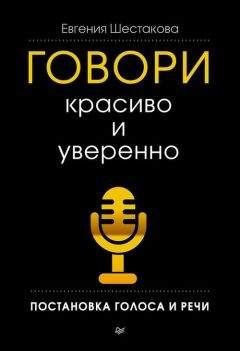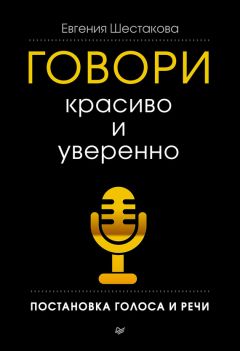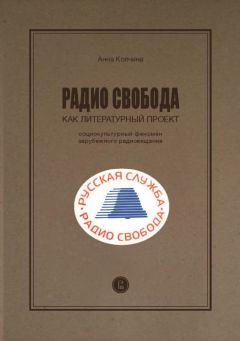Фрэнсис Фитцджеральд - Английский язык с Ф. Скоттом Фитцджеральдом. Алмаз величиной в отель «Риц» / Francis Scott Fitzgerald. The Diamond As Big As The Ritz
specification ["spesIfI'keISqn], facet ['fxsIt], divine [dI'vaIn]
He would give to God, he continued, getting down to specifications, the greatest diamond in the world. This diamond would be cut with many more thousand facets than there were leaves on a tree, and yet the whole diamond would be shaped with the perfection of a stone no bigger than a fly. Many men would work upon it for many years. It would be set in a great dome of beaten gold, wonderfully carved and equipped with gates of opal and crusted sapphire. In the middle would be hollowed out a chapel presided over by an altar of iridescent, decomposing, ever-changing radium which would burn out the eyes of any worshipper who lifted up his head from prayer — and on this altar there would be slain for the amusement of the Divine Benefactor any victim He should choose, even though it should be the greatest and most powerful man alive.
In return he asked only a simple thing (взамен он просит очень простую вещь), a thing that for God would be absurdly easy (то, для Бога будет до смешного легко /сделать/) — only that matters should be as they were yesterday at this hour (лишь, чтобы все: «дела/ситуация…» стало /таким/, как было вчера в тот же час) and that they should so remain (и чтобы так оставалось /всегда/). So very simple! Let but the heavens open (пусть только откроются = разверзнутся небеса), swallowing these men and their aeroplanes (поглотив этих людей и их аэропланы) — and then close again (а потом опять закроются = сомкнутся). Let him have his slaves once more (пусть у него снова будут рабы), restored to life and well (возвращенные к жизни и здоровые; to restore — возвращать в прежнее состояние, восстанавливать).
There was no one else with whom he had ever needed to treat or bargain (не было никого другого, с кем бы ему когда-либо приходилось вести переговоры или торговаться; to bargain — торговаться; заключить сделку).
He doubted only whether he had made his bribe big enough (он только сомневался, достаточно ли большую предложил взятку: «достаточно ли большой он сделал свою взятку»). God had His price (у Бога была своя цена), of course. God was made in man's image (был создан по образу человека), so it had been said (так сказано): He must have His price (у Него должна быть своя цена/Он должен получить свою цену). And the price would be rare (и цена /которую заплатит Брэддок/ будет редкостной) — no cathedral whose building consumed many years (ни один собор, строительство которого потребовало много лет; to consume — расходовать, тратить; поглощать), no pyramid constructed by ten thousand workmen (ни одна пирамида, воздвигавшаяся десятью тысячами работников), would be like this cathedral, this pyramid (не сравнится с этим собором, с этой пирамидой).
absurdly [qb'sWdlI], bargain ['bRgIn], cathedral [kq'TJdrql]
In return he asked only a simple thing, a thing that for God would be absurdly easy — only that matters should be as they were yesterday at this hour and that they should so remain. So very simple! Let but the heavens open, swallowing these men and their aeroplanes — and then close again. Let him have his slaves once more, restored to life and well.
There was no one else with whom he had ever needed to treat or bargain.
He doubted only whether he had made his bribe big enough. God had His price, of course. God was made in man's image, so it had been said: He must have His price. And the price would be rare — no cathedral whose building consumed many years, no pyramid constructed by ten thousand workmen, would be like this cathedral, this pyramid.
He paused here (тут он сделал паузу). That was his proposition (таково было его предложение). Everything would be up to specifications (все будет соответствовать описанию; specification — спецификация, подробное описание; деталь, подробность) and there was nothing vulgar in his assertion (и не было ничего вульгарного = бесцеремонного в его утверждении) that it would be cheap at the price (что он просит за это очень мало: «что за /такую/ цену это дешево»). He implied (имел в виду; to imply — выражать неявно, иметь в виду, намекать) that Providence could take it or leave it (что провидение вольно принять или отказаться).
As he approached the end (по мере того как он приближался к концу /своей речи/) his sentences became broken (его фразы становились оборванными: «поломанными»), became short and uncertain (короткими и неопределенными), and his body seemed tense (его тело, казалось, напряглось: «напряженным»), seemed strained to catch the slightest pressure (казалось, стремилось уловить малейшее движение; to strain — натягивать; напрягаться; стремиться /к чему-л./; pressure — давление; сжатие, стискивание; нажим) or whisper of life in the spaces around him (или шепот жизни в пространствах вокруг него). His hair had turned gradually white as he talked (его волосы постепенно белели, пока он говорил), and now he lifted his head high to the heavens like a prophet of old (и теперь он высоко поднял голову к небесам, как пророк древности) — magnificently mad (величественный в своем безумии: «величественно безумный»).
implied [Im'plaId], approach [q'prqVC], slight [slaIt]
He paused here. That was his proposition. Everything would be up to specifications and there was nothing vulgar in his assertion that it would be cheap at the price. He implied that Providence could take it or leave it.
As he approached the end his sentences became broken, became short and uncertain, and his body seemed tense, seemed strained to catch the slightest pressure or whisper of life in the spaces around him. His hair had turned gradually white as he talked, and now he lifted his head high to the heavens like a prophet of old — magnificently mad.
Then, as John stared in giddy fascination (затем Джону, продолжавшему смотреть с напряженным вниманием, так что у него начала кружиться голова: «когда Джон глядел в головокружительной завороженности»; giddy — испытывающий головокружение; страдающий головокружениями), it seemed to him that a curious phenomenon took place somewhere around him (показалось, что вокруг него происходит что-то странное: «/какое-то/ необычное явление»; to take place — иметь место, состояться; происходить, случаться). It was as though the sky had darkened for an instant (словно бы небо на миг померкло), as though there had been a sudden murmur in a gust of wind (как будто внезапный ропот был = послышался в порыве ветра), a sound of far-away trumpets (звук далеких труб), a sighing like the rustle of a great silken robe (вздохи, подобные шороху большого шелкового одеяния) — for a time the whole of nature round about partook of this darkness (на какое-то время вся природа вокруг отдала дань этой тьме; to partake — принимать участие; разделять /с кем-л./): the birds' song ceased (прекратилось пение птиц); the trees were still (деревья застыли; still — бесшумный, тихий, безмолвный; неподвижный), and far over the mountain there was a mutter of dull, menacing thunder (и далеко за горой раздались глухие, зловещие раскаты грома: «раскаты глухого, зловещего грома»; mutter — бормотание; ворчание; отдаленные раскаты /грома/).
That was all (и все). The wind died along the tall grasses of the valley (ветер замер в высоких травах долины). The dawn and the day resumed their place in a time (рассвет и день скоро вернулись на свое место; to resume — возобновлять; обретать вновь), and the risen sun sent hot waves of yellow mist (поднявшееся /над горизонтом/ солнце посылало жаркие волны желтого марева) that made its path bright before it (ярко освещавшие: «делающие ярким» пред ним его /небесную/ тропу/стезю). The leaves laughed in the sun (листья смеялись на солнце), and their laughter shook the trees (их смех сотрясал деревья) until each bough was like a girl's school in fairyland (так что каждый сук стал походить на школу для девочек в сказочной стране: «пока каждый сук не стал похож на…»). God had refused to accept the bribe (отказался принять взятку).
sighing ['saIIN], rustle [rAsl], bough [baV]
Then, as John stared in giddy fascination, it seemed to him that a curious phenomenon took place somewhere around him. It was as though the sky had darkened for an instant, as though there had been a sudden murmur in a gust of wind, a sound of far-away trumpets, a sighing like the rustle of a great silken robe — for a time the whole of nature round about partook of this darkness: the birds' song ceased; the trees were still, and far over the mountain there was a mutter of dull, menacing thunder.
That was all. The wind died along the tall grasses of the valley. The dawn and the day resumed their place in a time, and the risen sun sent hot waves of yellow mist that made its path bright before it. The leaves laughed in the sun, and their laughter shook the trees until each bough was like a girl's school in fairyland. God had refused to accept the bribe.
For another moment John watched the triumph of the day (еще минуту Джон смотрел на торжество дня). Then, turning, he saw a flutter of brown down by the lake (потом, обернувшись, он увидел трепетание /чего-то/ коричневого у озера), then another flutter (потом еще одно трепетание), then another, like the dance of golden angels alighting from the clouds (словно танец золотых ангелов, спускающихся с облаков). The aeroplanes had come to earth (сели на землю).
John slid off the boulder (соскользнул с валуна) and ran down the side of the mountain to the clump of trees (побежал вниз по склону горы к зарослям деревьев), where the two girls were awake and waiting for him (где обе девушки /уже/ проснулись и ждали его). Kismine sprang to her feet (вскочила на ноги), the jewels in her pockets jingling (ее карманах зазвенели драгоценные камни), a question on her parted lips (вопрос /был/ на ее раскрытых губах), but instinct told John (но инстинкт говорил = подсказывал Джону) that there was no time for words (что времени для слов = разговоров не было). They must get off the mountain without losing a moment (они должны уйти с горы, не теряя ни минуты). He seized a hand of each (схватил руку каждой = обеих за руки), and in silence they threaded the tree-trunks (и в молчании они стали пробираться между стволами деревьев; to thread — продевать нитку /в иголку/; пробираться, проскальзывать, прокладывать путь), washed with light now and with the rising mist (омытые светом и подымающимся туманом). Behind them from the valley came no sound at all (из долины позади них не доносилось ни звука), except the complaint of the peacocks far away (кроме жалоб = жалобных криков павлинов вдалеке) and the pleasant undertone of morning (и приятного, негромкого звучания утра; undertone — тихий или приглушенный голос, звук).
angel ['eInGql], behind [bI'haInd], peacock ['pJkOk]
For another moment John watched the triumph of the day. Then, turning, he saw a flutter of brown down by the lake, then another flutter, then another, like the dance of golden angels alighting from the clouds. The aeroplanes had come to earth.
John slid off the boulder and ran down the side of the mountain to the clump of trees, where the two girls were awake and waiting for him. Kismine sprang to her feet, the jewels in her pockets jingling, a question on her parted lips, but instinct told John that there was no time for words. They must get off the mountain without losing a moment. He seized a hand of each, and in silence they threaded the tree-trunks, washed with light now and with the rising mist. Behind them from the valley came no sound at all, except the complaint of the peacocks far away and the pleasant undertone of morning.
When they had gone about half a mile (когда они прошли около полумили), they avoided the park land (они обошли стороной парк; to avoid — избегать, сторониться, уклоняться) and entered a narrow path (и ступили на узкую тропу) that led over the next rise of ground (которая вела через следующую возвышенность: «возвышение земли»). At the highest point of this they paused and turned around (на ее высшей точке = вершине они остановились и оглянулись). Their eyes rested upon the mountainside they had just left (их глаза обратились на склон, который они только что покинули; to rest — отдыхать; покоиться /о взгляде/; останавливаться, быть прикованным /о взгляде, внимании/) — oppressed by some dark sense of tragic impendency (их охватило смутное/сумрачное чувство = предчувствие /какой-то/ трагической неизбежности; to oppress — подавлять, притеснять; удручать, действовать угнетающе).



